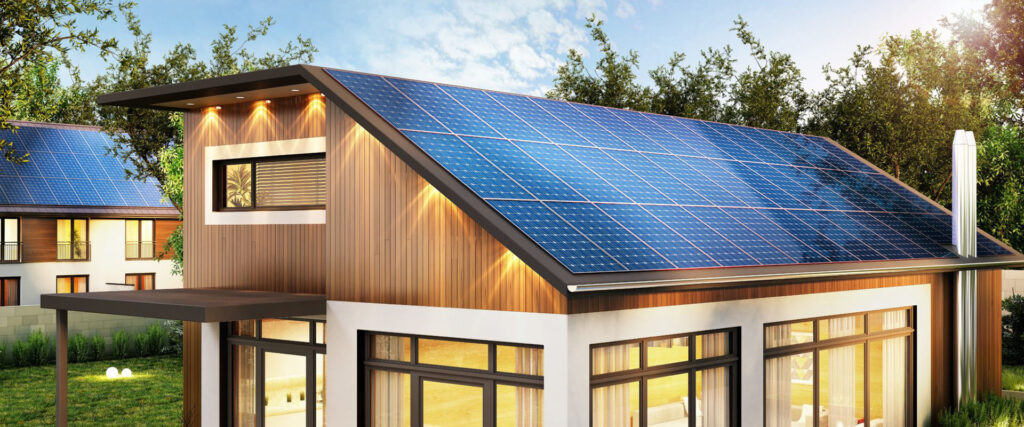Energy-saving and water-wise features are proving to be major selling points with a growing group of property buyers who prefer JoJo tanks and solar panels to water features or jacuzzi’s.
Property-owners have been battling to survive rising consumer prices, annually paying more for electricity and water bills which has taught a hard-learned appreciation for energy and water saving features, especially in the Western and Eastern Cape that are both buckling under a severe drought for the last couple of years. For estate agencies, facing their own battles to survive in a sluggish market, the growing demand for properties designed for sustainable living are touted as the new gold.
Highlighting these features on properties for sale can be a major selling point as Johan du Toit, partner from Engel & Völkers Stellenbosch can testify. He presented a couple of properties to clients from Sweden, but in light of the current water crisis they opted for a particular property in Stellenbosch because it had its own supply of tested and approved water for human consumption, a swimming pool running from borehole water and a solar system supplying the hot water.
“It shows that having eco-friendly sustainable homes have become strengths in effecting the choices made by tourists as well as for buyers. We believe that this will add a handsome premium to the price of accommodation and real estate” says Craig Hutchison, CEO Engel & Völkers Southern Africa.
Engel & Völkers even have a Green Projects division which will be building an energy efficient home on Lekwena Wildlife Estate near Potchefstroom, an industry first for the area says Carl Venter, licence partner of Engel & Völkers Potchefstroom. The energy consumption of the house will be closely monitored, and this information will be used to advise clients who want to make their own homes more energy efficient he says.
Tony Clarke, Managing Director of the Rawson Property Group says they have noticed that most buyers are looking for energy-saving features like solar powered systems, gas-powered stoves instead of electrical stoves and double-glazed windows. Buyers are also more water aware and are looking for homes with greater water security such as grey water garden irrigation systems, boreholes, enough space to fit more than one JoJo tank while luxury features such as pools, water features and jacuzzi’s have taken a back seat for now.
Water and energy self-sufficiency are increasingly important factors in home buyers’ choice of property, especially in Cape Town, where the extreme drought of the past few years has made municipal water supply costly and uncertain.
“This preference is particularly pronounced at the upper-end of the market, where we find buyers are now specifically looking for homes that have rainwater storage tanks, grey-water systems and water-saving devices installed as well as equipment like solar geysers and heat pumps,” says Devin de Moyland, Camps Bay area specialist for Chas Everitt International.
“Such buyers are also not too keen to make use of the ‘bulk water suppliers’ who have been trucking water in to Cape Town residents determined to fill their pools or water their gardens despite the city’s strict water restrictions. They are consequently also seeking out upmarket homes where the owners have already exchanged lawns and flowerbeds for low-maintenance and water-friendly gravel beds, succulents and indigenous trees.”
“Sustainable living is a trend that is growing globally. In Europe sustainable living has become a way of life and most building plans require sustainable designs as a prerequisite for city/council approval,” says Vangelis Doucas from Team Vangelis of the RE/MAX Living Office that operates in the southern suburbs of Cape Town. Doucas foresees that the mother city will soon follow global trends in ensuring that building plans only get approved if several sustainable living criteria (pertaining to water, electricity and other factors) are complied with.
“We have noticed that consumers are increasingly catching onto global environmental trends and are asking more and more questions about whether the property has a bore hole, solar panels, and ‘jo-jo’ tanks – and these pertain to both apartment buildings and free-standing houses. We anticipate that more homeowners will increasingly investment in their own resources and take responsibility for living a greener lifestyle,” says Doucas.
Eco estates, housing developments that have a sustainable lifestyle focus and have been built around some form of nature conservation, is another trend picking up especially in KwaZulu Natal says Adrian Goslett, Regional Director and CEO of RE/MAX of Southern Africa.
“All of the estates embody a ‘green’ ethos with a particular focus on reducing the impact we have on our natural resources. Architects working within these estates aim to design energy efficient homes that reduce the homeowner’s carbon footprint. There is also a big demand for estates to develop around our environmental assets, such as our coastal forests, for example. These resources then act as the draw card and present an attractive lifestyle element to potential buyers. Some of the major estates have become very creative in what they offer in terms of lifestyle: from fishing dams to mountain bike trails, horseback riding and club houses targeted at various age groups,” Simon Peacock, Broker/Owner of RE/MAX Dolphin explains.
Seeff’s agents in the Cape Metro highlighted a number reasons why ‘green’ properties are in demand. All the reasons can be highlighted as selling points when marketing properties, especially high-end properties in the over R1 million sector that have been experiencing a slump in sales over the last couple of months.
- Energy efficient lights and solar heating
- Back-up generators
- Any form of rainwater collection and gray water usage system
- Water-wise gardens with smaller or no lawns and with indigenous plants that require less water
- Recycling collection and drop off points
- Use of water-saving appliances, environment-friendly building materials
In short, there is most definitely an increase in environmental awareness and more responsible living and this is filtering through to the demand for property with ‘greening’ features, the more, the better.
IMAGE SOURCE: moneypit.com








